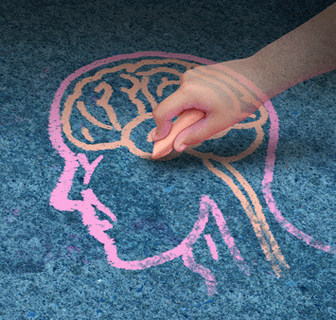The DTLA, Detroit Test of Learning Aptitude is used to measure special needs of the subjects.
DTLA can identify early if your child has special needs!
Detroit Test of Learning Aptitude, DTLA measures general and specific mental abilities!
If you’re looking for an aptitude test that will tell you if your child or teen can benefit from special education, remedial classes or some form of reasonable accommodation, you don’t have to look further than the Detroit Test
. The test can provide you with information regarding your child or teen’s general intelligence, as well as his aptitude in specific inter-related mental tasks. Like most psychological tests, the Detroit Testis not only beneficial in the hunt for the problematic questions yet can also surface strengths and learning styles.
An Overview of the DTLA
The Detroit Test of Learning Aptitude is composed of 11 assessments that evaluate different aspects of intelligence among young children and teenagers. Unlike most aptitude tests, the DTLA is administered one-on-one as the protocol is not just made up of a pen-and-paper test. Instructions can be given orally, and actual behavior is being measured aside from verbal responses. In some of the sub-scales, even the test-takers’ motor skills are being assessed. The test takes anywhere around 15 to 45 minutes to administer.
The following are just some 3 of the 11 sub-tests within the DTLA:
1- Visual Attention Span for Letters
The test-taker is asked to recall a set of random letters presented visually. The proctor begins by offering just two notes for the test-taker to memorize, but the number of messages showed increases over time.
2- Verbal Absurdities
As the term implies, this test involves the presentation of weird and nonsensical phrases and statements to the test-taker. Test-taker must them explain what is absurd about the phrases or statement he or she heard. This subtest aims to measure understanding of the material presented orally.

3- Following Oral Directions
This test is designed to measure a person’s aptitude in grasping and executing directions presented orally. In many ways, this is a more practical measure of intelligence, as it involves measuring a skill that is critical in not just school but also at work.
The good thing about the sub-tests of the Detroit Test of Learning Aptitude is that they don’t contain the bias of traditional aptitude tests against persons with visual impairment or learning disabilities related to reading and comprehension of written text (e.g., dyslexia). The precise delineation of which senses or learning style to use in each sub-test also makes for the easy identification of special needs in particular areas. For instance, a child who does well in processing information presented visually, but struggles with the information given orally, may need extra support in classrooms where lectures are the primary medium of instruction.
More so, the test is age-sensitive. That is, it uses a different set of norms when dealing with young children and when dealing with young adults. You can use the Detroit Test of Learning Aptitude – Primary 3rd Edition (or DTLA – P3) when testing children 6 to 11 years of age, and the regular format for older children.
How You Can Avail of the Test?
Like most standardized tests, the Detroit Test of Learning Aptitude is administered by licensed psychometricians, educational psychologists, and clinical psychologists. It is because there are significant considerations when conducting psychological assessments; an untrained proctor can skew the results. Keeping the protocol away from the general public’s hands also help in maintaining the integrity of the test. If a rational assessment is readily made available for everyone, then the norms (the scores that are being used to define what is statistically “average” or within the typical range) will no longer be reliable.
But this doesn’t mean that availing of the assessment is impossible. The best way to go about it is to ask the mental health professionals in your area. If your child or teen is still at school, consult people from the guidance and counseling office; they usually make available assessment tools that can help their students adjust better both in and out of the classroom. Or you can approach learning specialists, especially those that conduct the assessment for special needs children.
If you need more leads on who can administer the Detroit Test of Learning Aptitude in your area, you can make an inquiry to the state board that license psychometricians and psychological testing centers.
Practice with Free Aptitude Tests
Share Your Thoughts!
We find value in differences between learning, interpreting and overall opinions. Please share your thoughts freely about this topic, but always remain respectful. You can preview and edit on the next page before your submission is sent in. You will also be informed about this site's privacy policies.
Thank you for your contribution.
Recent Articles
-
What type of test did I take
Apr 04, 22 04:09 AM
I was given a psychological test years ago, but wasn’t told what it was for. The rating used a bell curve and my score fell in the above average not yet -
ﹰﹰﹰﹰﹰﹰﹰGOOD
Aug 13, 21 03:20 PM
Since the enneagram test helps people to understand their strength and weaknessess. And helps them remove their weaknesses then the test is good -
Knowing the inner me
Aug 13, 21 03:17 PM
Sometimes I ask myself that is this my behaviour or not? Because I am really shy and I lack confidence, I find it hard to socialize with other people.I
